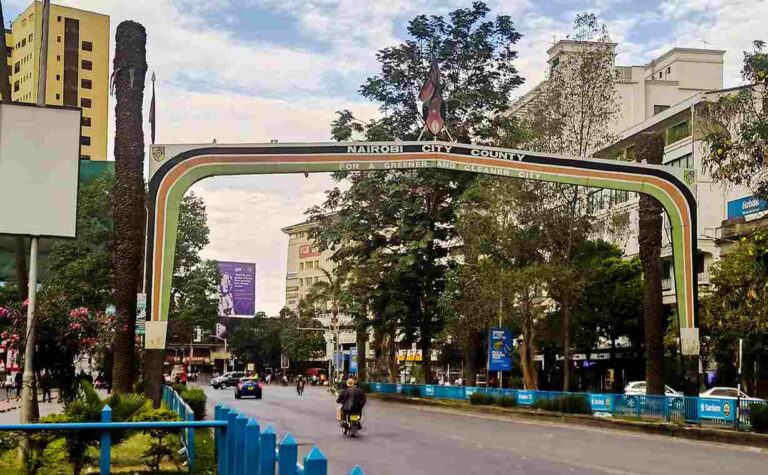As the Azimio la Umoja Coalition organizes a three-day wave of protests in Kenya, addressing the high cost of living, it is important to note that the impact of these demonstrations goes beyond just political discussion.
While the opposition aims to pressure the government to lower living costs, it is crucial to acknowledge the negative effects these protests may have on ordinary citizens and their daily struggles amidst the unrest.
Impact on Healthcare and Essential Services
One of the gravest concerns arising from the ongoing demonstrations is the hindered access to healthcare services for impoverished families and vulnerable individuals.
According to the Kenyan Master Facility List (MFL), most Kenyan hospitals are located in urban areas, most of which have been the epicentres of these demonstrations.
With roads blocked and transportation paralyzed, people find it increasingly difficult to reach hospitals and medical facilities. This obstructs ambulances and emergency services, potentially delaying critical medical attention and endangering lives.
Moreover, the disruption of transport services impedes the timely supply of medicines to health facilities, further compromising patient care.
Patients with chronic conditions such as kidney failure, which necessitates dialysis, face particularly dire circumstances. The inability to reach medical centres during protests places their health and well-being at significant risk.
Economic Disruptions
Banks and financial institutions are grappling with challenges in transporting cash and providing services outside of Nairobi, where the protests have been most intense.
This lack of cash flow hampers business operations, reduces local investments, and stifles growth opportunities in affected regions.
According to the Kenya Private Sector Alliance (KEPSA), the nation loses an estimated Ksh 3 billion daily from the ongoing protests.
Open markets and eating places, vital sources of livelihood for many Kenyans, have suffered from a lack of customers during the protests.
Small businesses, the backbone of the economy, are bearing the brunt of significant losses, making it difficult for them to support their families and employees.
This economic downturn directly affects the most vulnerable in society, exacerbating the already high cost of living and pushing them deeper into poverty.
Economic disruptions could negatively affect the economy, which has remained stable despite hikes in global oil prices.
“The ongoing demonstrations have negative effects on doing business in the region as they disrupt trade as well as investments. I think it is high time the Kenya government took proactive action to resolve this by seeking an amicable solution,” said John Bosco Kalisa, Chief Executive of East African Business Council.
Transportation Woes
The transport sector is among the hardest hit by these demonstrations. As protests occasionally turn violent, commuters have become apprehensive about travelling, fearing encounters with demonstrators on the roads.
This unpredictability has led to a decline in passenger demand for public transport and personal vehicles. Consequently, transportation services have seen a decrease in revenue and viability.
Protestors have resorted to blocking vehicles, looting, and using physical blockades to obstruct roads during protests. These road blockades severely disrupt transportation routes, making it arduous for vehicles to reach their destinations.
Consequently, the movement of goods and people faces substantial disruptions, causing delays and negatively impacting businesses reliant on timely transportation.
Impact on Education
The ongoing unrest has also taken a significant toll on education. The functioning of schools has been disrupted, and safety concerns have prevented many students from attending classes.
In response to the planned protests, the government has even announced the closure of all-day schools in Nairobi, Kisumu, and Mombasa. This interruption in learning could have long-term consequences, as students miss out on critical lessons and educational milestones.
As a precautionary measure to ensure the safety of school children, it has been decided that ALL day Primary and Secondary schools within Nairobi, Mombasa and Kisumu Counties SHALL remain closed tomorrow. pic.twitter.com/nh94MCCHUc
— Ministry of Interior | Kenya (@InteriorKE) July 18, 2023
Their future prospects and opportunities for personal growth and socio-economic advancement may be affected as a result.
Beyond the tangible economic disruptions, the protests have inflicted a psychological and emotional toll on Kenyans. The violence and unrest have created an atmosphere of fear and anxiety, particularly for those living in areas heavily impacted by the demonstrations.
Families and communities find themselves trapped in an atmosphere of uncertainty, fearing for their safety and livelihoods.
A peaceful resolution to these Kenya protests is crucial to restore normalcy, protect the most vulnerable, and address the underlying concerns regarding the high cost of living.
Only by considering the human impact of these demonstrations can meaningful change be fostered in Kenya.




